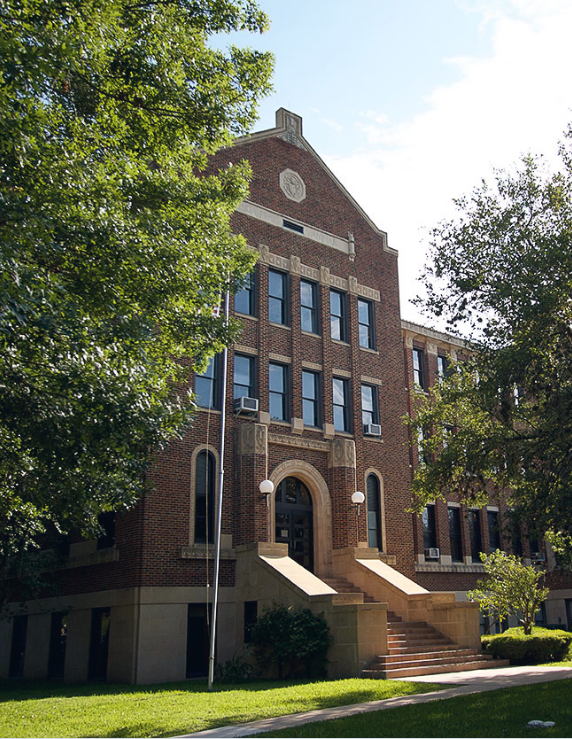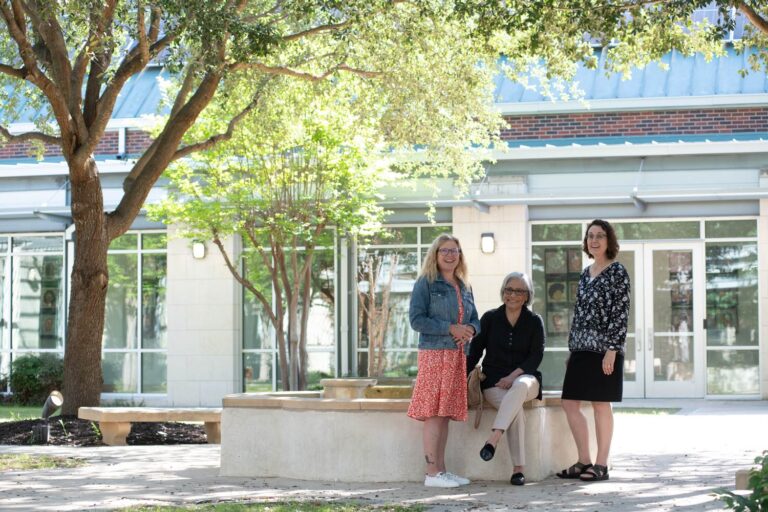Social activist and author Dr. Mary Jo Leddy, delivering Oblate School of Theology’s 2019 Louis G. Vance Lecture, called for a new way of relating to each other as neighbors and for individuals to work toward the common good.
Dr. Leddy has directed Romero House in Toronto, Ontario, a ministry of hospitality to refugees, for 28 years. She said changing the hostile climate of the neighborhood where Romero House was started took 10 difficult years, but acts of kindness slowly brought the neighborhood together.

“These are difficult times,” she observed early in her address, “and it’s not easy to be hopeful. There is in this climate a lot of rage and anger, and people feel it. We’d have to be blind not to say there are deep divisions. They’re felt in meetings of town councils, communities, schools – even theology schools – and the Vatican. There is conflict between progressives and conservatives,” she noted.
Dr. Leddy said it took the group that founded Romero House persistence to build friendships and bring neighbors together. At one point, an angry mob disrupted a city council meeting, charging that the center’s plans to renovate a garage would bring “drug abuse, prostitution and peeping Toms all over the place.” The neighbors didn’t want refugees and their hosts living near them.
“We felt that we couldn’t love in that neighborhood. We didn’t have anything in common—not language, religion, culture or values. What could we hope for?”
But Dr. Leddy said she came to realize that in her anger over the irate neighbors’ behavior, she was becoming precisely what she was fighting against. She also realized that the street on which they lived was what they all had in common – “something that nobody owned but which we were all responsible for keeping clean: the simplest kind of neighborliness.”
Dr. Leddy observed that there is much conversation in today’s society about the common good being among those who share the same values or who see things the same way, “like a politician who says, ‘Vote for a candidate who looks like you.’ They think of the common good as sameness; but change comes when you begin to say, ‘This is the street that we share; it’s both bigger and smaller than any of us,’” she pointed out.
The speaker observed that, as Jesuit Fr. David Hollenbach of Georgetown University has pointed out, ancient Greece and Rome fostered public debate, as did cities in medieval times. The common good existed in “the commons” – a public place in the center of a town where people gathered for a variety of interactions.
She said that Hollenbach has observed that, in classical and medieval theological writings, hardly anything is written about the common good, and yet the idea of the common good is central to Catholic social teaching. Among the foundational documents of the Second Vatican Council, only one sentence in the Pastoral Constitution on the Church in the Modern World mentions the common good; however, it is assumed and is foundational to much of Catholic social thinking.
Dr. Leddy said she discovered that her vision to change the social dynamic of her neighborhood reflected similar customs throughout world history. In medieval times, small towns with monasteries had spaces called “commons” where people bought and sold items, gathered for celebrations and were married. “People in these cultures had a daily physical experience of what it meant to gather around a physical sense that they shared something in common that nobody owned but all were responsible for,” the speaker observed.
However, in 18th-century Europe, she continued, people began to buy pieces of land that previously had been shared in common. “They said, ‘I own this; it’s mine.’ They controlled it. Everything became subject to ownership; they lost a sense of anything being held in common,” she explained.
Dr. Leddy said that today’s society needs “a whole way of looking at the world that isn’t about owning or control. It’s a way of recognizing that what we’ve been given is a gift that we could never organize or build ourselves. The minute we say, ‘This is our country,’ or ‘this church is ours,’ or ‘we’re the ones who decide who can live here and who can’t,’ we lose it, and it’s gone.”
She said it’s not enough to agree to disagree, adding, “We must be able to say we have something in common that’s greater than the divisions that are so obviously apparent.”
Dr. Leddy pointed out that being a good neighbor doesn’t mean doing everything for someone, but it means caring and doing something – the lesson of Jesus’ parable of the Good Samaritan. “He didn’t do everything, but he cared enough to do something,” she said.
Visit the OST YouTube channel for more free videos!
By: J. Michael Parker, Director of Communications



